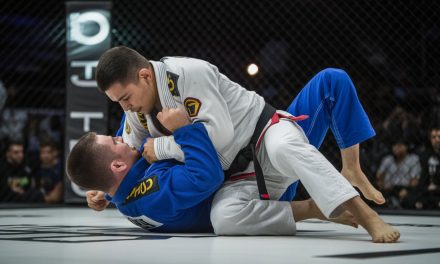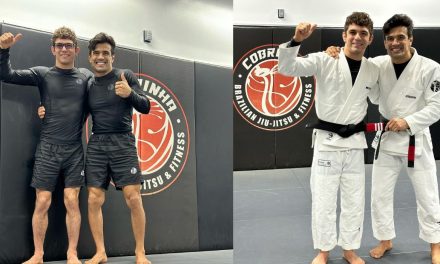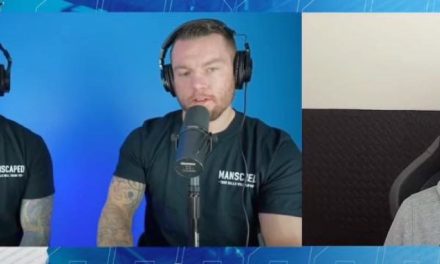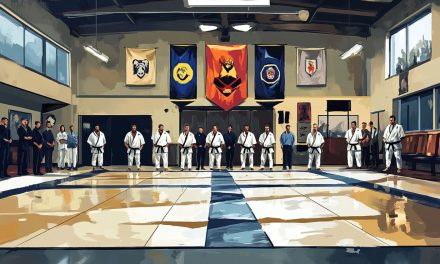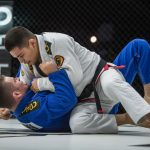As Brazilian Jiu-Jitsu (BJJ) gears up for the anticipated WNO 28 event, the spotlight is on competitors and the evolving landscape of performance-enhancing drug (PED) testing, especially with insights from notable figures like Ffion Davies and Mikey Musumeci.
Short Summary:
- Ffion Davies highlights the negative perception of PEDs in BJJ and its impact on corporate sponsorships.
- Mikey Musumeci reveals plans for UFC BJJ to implement PED testing for athletes.
- The evolution of BJJ, including the importance of maintaining a clean image for mainstream growth.
Brazilian Jiu-Jitsu (BJJ), a sport embraced globally for its technical finesse and competitive spirit, finds itself at a crucial juncture marked by a growing conversation surrounding the use of performance-enhancing drugs (PEDs). As the sport continues to attract mainstream attention, especially with the involvement of organizations like UFC, the need for a robust anti-doping framework has become increasingly clear.
In a revealing dialogue with MMA commentator John Gooden for his series “Up Close,” Ffion Davies, a multi-time world champion and current UFC athlete, laid bare the detrimental effects of PED use on the perception of BJJ. Recognizing the sport’s surge in popularity, Davies articulated concerns about the normalization of PED use, particularly steroids, which may tarnish the image of Jiu-Jitsu and deter potential sponsors.
“There are some things in the sport like the heavy use of steroids, for example, that can be unfortunately associated with jiu-jitsu,” Davies shared candidly.
Her sentiment resonates deeply within the grappling community. Davies further explained that this negative connotation not only impedes the sport’s appeal but also inhibits lucrative brand partnerships that could catalyze its growth.
“If things like this can start to be peeled back and removed, I feel like it’ll be a big push in the right direction to have bigger brands and things interested in it,” she added.
This calls attention to the reality that corporate sponsors typically seek clean images when aligning with athletes and sports. As Davies indicated, the current associations with PEDs can discourage mainstream brands from associating with BJJ.
“Right now, with that negative association or like the normalization of it, I think it can be fairly off-putting for the more mainstream brands to want to be associated with it,” she noted.
Davies stands as a representative of a new generation of BJJ athletes who recognize the integral connection between professional standards and the sport’s commercial prospects. Her call for a more transparent approach comes at a pivotal time as jiu-jitsu experiences unprecedented growth, supported by organizations like the UFC that continue to draw wider audiences.
The issue of performance enhancement in BJJ, however, is fraught with complexities. Unlike traditional sports that often boast stringent testing protocols, grappling events have historically employed inconsistent methods regarding PED testing. This lax approach has led to a culture that, in segments, appears to have normalized the use of performance enhancers, with several of the sport’s luminaries openly acknowledging their PED use, including Gordon Ryan, a UFC signed athlete known for his outspoken advocacy for drug use in the sport.
“There’s more money than ever in jiu-jitsu,” Davies observed, highlighting the sport’s financial potential amidst these challenges.
Indeed, to harness this momentum fully, BJJ must confront factors that could deter investment and sponsorship opportunities. Davies elaborated on how the structure and professionalism of the UFC could significantly elevate BJJ.
“With the UFC and how it’s like the professionalism of the UFC and the things it’s associated with, I think that will take it to the next step,” she emphasized.
Jiu-jitsu currently finds itself navigating a path that could transition it from a niche sport into a mainstream athletic endeavor, entirely dependent on strict measures regarding performance enhancement. Davies’s advocacy for a cleaner image embodies both an ethical and strategic vision for the sport’s future.
As various sectors within the sport begin addressing these pressing concerns, potential sponsors exploring entry into the BJJ market may find a more inviting environment for investment. In her own words, Davies highlighted the evolving landscape:
“I find it so funny. People are like, ‘There’s no money in jiu-jitsu,’ and I’m like, there is. There absolutely is.”
She reminisced about the changing dynamics in BJJ, recalling how opportunities have expanded beyond merely competing. The existence of seminars, teaching roles, and sponsorships offers athletes new avenues for revenue generation that previously were often limited to mixed martial arts (MMA) or a narrow elite of competitors.
“Eventually — like before all these opportunities like the UFC contract and now Armor — it was like, okay, I had to do seminars. But like, that’s the best lifestyle ever: getting around to travel the world teaching seminars.”
Looking forward, the clarity brought forth by the potential introduction of stringent PED testing measures is indeed promising. Mikey Musumeci, one of the notable faces in BJJ, recently disclosed that UFC BJJ aims to implement such testing protocols, a change that could redefine the competition landscape.
This major decision was unveiled during a Q&A session on Musumeci’s Instagram, where he emphasized the need for greater integrity in the sport. Historically, testing in grappling has been minimal, with major organizations like IBJJF (International Brazilian Jiu-Jitsu Federation) and UAEJJF (United Arab Emirates Jiu-Jitsu Federation) often reserving testing protocols exclusively for top performers, leaving many beneath the radar.
“The decision to implement testing as a much-needed positive step,” Musumeci stated. “This is crucial for our legitimacy.”
The implications of this announcement align seamlessly with the UFC’s broader anti-doping efforts exhibited across its mixed martial arts divisions. As Musumeci prepares for the debut season of UFC BJJ—coaching alongside Rerisson Gabriel—this new policy will shape contenders’ paths and reinforce ethical considerations in competitive grappling.
While the sporting realm eagerly anticipates the debut of UFC BJJ, its structure will include legitimate athletes competing in multiple weight classes, crowned as champions for weight divisions including lightweight, welterweight, and bantamweight.
Impact of Anti-Doping Policy on BJJ Growth
UFC’s newly established Anti-Doping Policy stands as a progressive initiative to maintain fair competition and safeguard athletes’ health. Emphasizing its commitment to transparency, Hunter Campbell, UFC Chief Business Officer, stated:
“UFC’s goal for the Anti-Doping Policy is to be the best, most effective, and most progressive anti-doping program in all of professional sports.”
This renewed commitment encapsulates not only a promise to ensure that athletes are competing under equitable conditions, but also to bolster the integrity and reputational standards of the sport. With the anticipation surrounding PED testing, UFC is receptive and adaptive to athletes’ health concerns, backing this through rigorous evaluations, sample analysis, and the acceleration of clean sportsmanship within their events.
The implementation of random, no-notice sample collections adds a robust layer of safety and accountability within the sport. This new system will enable testing 365 days a year, conducted by Drug Free Sport International, a largely respected entity in the anti-doping industry.
Furthermore, the samples collected will be examined at the world-renowned Sports Medicine Research Testing Laboratory (SMRTL), offering assured accuracy and integrity in testing procedures.
The Road Ahead
As BJJ continues to evolve, the steps taken toward stringently implemented anti-doping policies will cultivate a more investor-friendly atmosphere, potentially elevating the sport to new heights. The cohesion of athletes, organizations, and sponsors is vital as the sport aims for mainstream acceptance, ultimately strengthening its position within the global athletic community.
The upcoming events heralding UFC BJJ demonstrate how effective leadership and progressive strategy can underpin a recreational pursuit as it transforms into a viable mainstream athletic spectacle. With increased dialogue around performance enhancement and comprehensive drug testing initiatives, fans and participants alike are optimistic for a cleaner, more consistent competitive experience in the realms of Brazilian Jiu-Jitsu.
As we look forward to July’s WNO 28 event and an array of thrilling bouts, the lessons learned regarding ethics and integrity will take center stage amidst fiercely contested matches and the hopeful promise of renewed professionalism in grappling sports.

